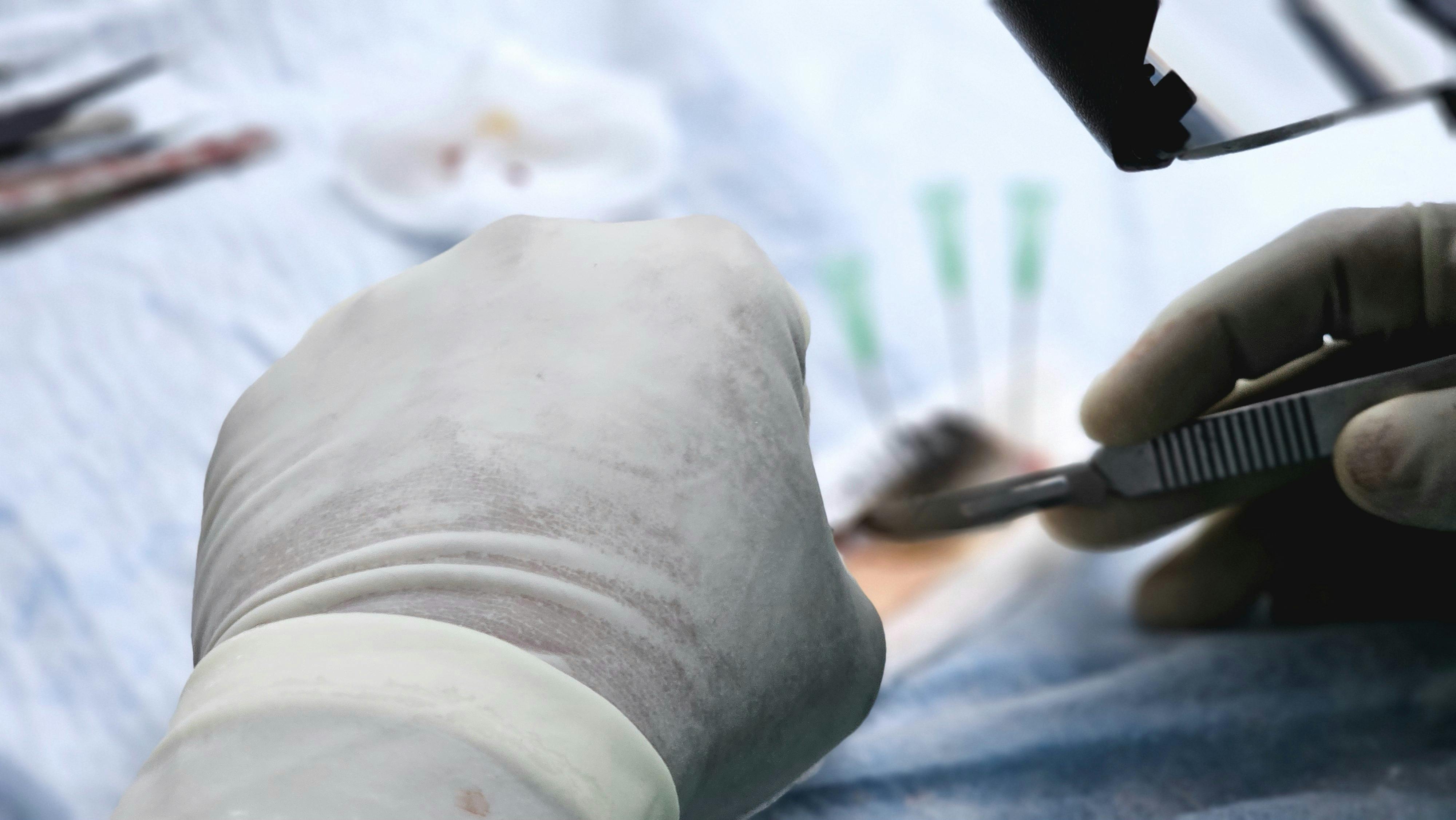Pre-Operative Testing Requirements for Facial Surgery
Understanding the medical evaluations and tests required before facial surgery is essential for ensuring patient safety and optimal outcomes. Pre-operative testing helps identify potential health risks, establishes baseline medical information, and allows surgeons to tailor their approach to each individual's unique needs. These assessments typically include laboratory work, cardiovascular evaluations, and imaging studies that provide a comprehensive picture of your health status before undergoing any surgical procedure.

Before undergoing any facial surgical procedure, patients must complete a series of medical evaluations designed to assess their overall health and identify potential complications. These pre-operative tests serve as critical safety measures that protect patients throughout the surgical process and recovery period. The specific tests required vary based on the type of procedure, patient age, medical history, and the presence of underlying health conditions.
Thinking About Facial Surgery? A Guide To Choosing The Right Procedure
Selecting the appropriate facial procedure begins with understanding your aesthetic goals and medical suitability. Common facial surgeries include rhinoplasty, facelift, blepharoplasty, brow lift, and chin augmentation. Each procedure addresses different concerns and requires specific pre-operative assessments. During initial consultations, surgeons evaluate facial structure, skin quality, and discuss realistic expectations. The choice between surgical and non-surgical options depends on the degree of correction needed, recovery time available, and long-term goals. Factors such as age, skin elasticity, bone structure, and overall health significantly influence which procedures will yield the best results. A thorough medical history review helps identify contraindications and ensures that the chosen procedure aligns with both aesthetic desires and medical safety parameters.
Cosmetic Procedures: Understanding Your Options For Facial Enhancement
Facial enhancement options range from minimally invasive treatments to comprehensive surgical interventions. Non-surgical alternatives include dermal fillers, botulinum toxin injections, laser resurfacing, and chemical peels, which typically require minimal pre-operative testing. Surgical procedures demand more extensive medical clearance due to anesthesia requirements and tissue manipulation. Understanding the differences between these approaches helps patients make informed decisions. Surgical enhancements offer permanent or long-lasting results but involve longer recovery periods and more comprehensive pre-operative evaluations. The complexity of the procedure directly correlates with the extent of required testing. Combination procedures, where multiple facial areas are addressed simultaneously, necessitate even more thorough medical assessments to ensure patient safety throughout extended surgical sessions.
How To Choose A Qualified Specialist For Your Facial Surgery
Selecting a qualified facial surgeon requires careful research and verification of credentials. Board certification in plastic surgery or otolaryngology with facial plastic surgery fellowship training indicates specialized expertise. Surgeons should have hospital privileges, which require peer review and quality assessments. Review before-and-after photographs of previous patients with similar concerns to evaluate aesthetic consistency and technical skill. During consultations, assess communication style, willingness to answer questions, and thoroughness in explaining risks and benefits. Verify that the surgical facility is accredited by recognized organizations ensuring safety standards. Ask about complication rates, revision procedures, and post-operative care protocols. A qualified specialist will conduct comprehensive pre-operative evaluations, coordinate with other medical professionals when necessary, and prioritize patient safety above all considerations.
Standard Laboratory Tests Required Before Facial Surgery
Most facial surgical procedures require basic laboratory work to establish baseline health status. Complete blood count evaluates red and white blood cells, hemoglobin levels, and platelet counts, which affect bleeding risk and healing capacity. Comprehensive metabolic panels assess kidney and liver function, electrolyte balance, and blood glucose levels. Coagulation studies measure blood clotting ability, identifying patients at risk for excessive bleeding or clot formation. These tests typically need completion within 30 days of surgery. Patients with chronic conditions may require additional specialized testing. Abnormal results may necessitate medical optimization before proceeding with surgery, potentially delaying the procedure until health parameters reach acceptable ranges. Some surgeons also request urinalysis to screen for infections or kidney problems that could complicate recovery.
Cardiovascular and Respiratory Evaluations
Patients over certain ages or with cardiovascular risk factors require electrocardiograms to assess heart rhythm and detect abnormalities that could pose risks under anesthesia. Those with heart disease, hypertension, or previous cardiac events may need cardiology clearance, including stress tests or echocardiograms. Respiratory function tests become necessary for patients with asthma, chronic obstructive pulmonary disease, or smoking history, as these conditions affect anesthesia tolerance and recovery. Chest X-rays may be ordered for older patients or those with respiratory symptoms to rule out lung pathology. The anesthesiologist reviews all cardiovascular and respiratory test results before surgery, determining the safest anesthesia approach. Patients with significant cardiac or pulmonary issues may require medical optimization or alternative anesthetic techniques to minimize surgical risks.
Imaging Studies and Specialized Testing
Certain facial procedures require imaging studies for surgical planning and safety assessment. Rhinoplasty patients may undergo nasal endoscopy or CT scans to evaluate internal nasal structures and identify anatomical variations. Facial implant procedures sometimes require X-rays or CT scans to assess bone structure and plan implant placement. Patients with previous facial trauma or congenital abnormalities need comprehensive imaging to guide surgical approach. Pregnancy tests are mandatory for women of childbearing age, as anesthesia and certain medications pose fetal risks. Patients taking specific medications may require additional blood tests to monitor therapeutic levels or assess organ function. Those with bleeding disorders need specialized coagulation studies beyond standard testing. Smokers may undergo carbon monoxide testing to verify smoking cessation compliance, as smoking significantly impairs healing and increases complication risks.
Cost Considerations and Pre-Operative Testing Expenses
Pre-operative testing adds to the overall cost of facial surgery, with expenses varying based on required assessments and insurance coverage. Basic laboratory panels typically range from 100 to 300 dollars, while specialized tests like echocardiograms or CT scans can cost 500 to 2000 dollars. Most health insurance plans cover medically necessary pre-operative testing, though cosmetic surgery itself remains out-of-pocket. Patients should verify coverage with insurance providers and surgical facilities before scheduling tests. Some surgical centers include basic testing in their package pricing, while others bill separately. The total investment in facial surgery, including pre-operative assessments, surgical fees, anesthesia, facility costs, and post-operative care, varies significantly based on procedure complexity and geographic location.
| Test Category | Typical Cost Range | Purpose |
|---|---|---|
| Basic Laboratory Panel | 100 - 300 dollars | Blood count, metabolic function, coagulation |
| Electrocardiogram | 50 - 200 dollars | Heart rhythm and function assessment |
| Chest X-Ray | 100 - 400 dollars | Lung and heart structure evaluation |
| CT Scan | 500 - 2000 dollars | Detailed facial structure imaging |
| Echocardiogram | 800 - 2000 dollars | Comprehensive cardiac evaluation |
| Specialized Blood Tests | 150 - 500 dollars | Specific conditions or medication monitoring |
Prices, rates, or cost estimates mentioned in this article are based on the latest available information but may change over time. Independent research is advised before making financial decisions.
Understanding pre-operative testing requirements empowers patients to prepare adequately for facial surgery. These assessments protect patient safety, optimize surgical outcomes, and identify potential complications before they arise. Working closely with qualified surgeons and following all pre-operative instructions ensures the smoothest possible surgical experience and recovery process.




